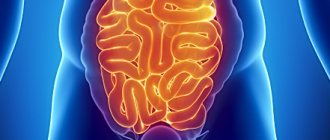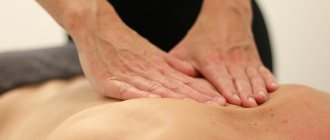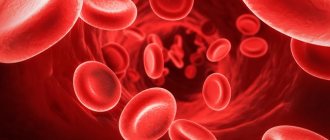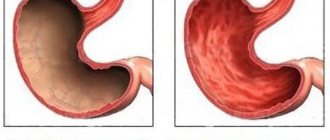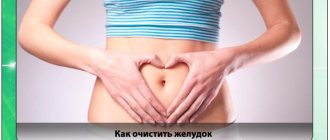Both vomiting and diarrhea are unpleasant symptoms that can accompany a wide range of diseases. They not only disrupt the usual rhythm of everyday life, but cause physical discomfort, cause general weakness, and in some cases can even pose a threat to life.
Vomiting and diarrhea in an adult are signs of intoxication. This condition may be accompanied by an increase in temperature. The combination of two or three factors indicates that the body requires urgent, and most importantly, the right help. What are the causes of the condition, what to do, how and with what to treat the patient in this case?
Provoking factors
Sudden diarrhea and vomiting in an adult are protective reactions of the body, which thus tries to get rid of toxins that have entered it. In some cases, this symptom complex indicates the development of serious diseases, as well as organic changes in the walls of the gastrointestinal tract. The most common causes of diarrhea and vomiting:
- Banal poisoning from low-quality products.
- Overeating, abuse of fatty foods with enzyme deficiency.
- Entering the body with a bacterial infection (salmonellosis, dysentery, cholera).
- Viral infection (rotavirus, hepatitis).
- Stomach diseases (gastritis, peptic ulcer).
- Inflammation of the pancreas.
- Cholecystitis.
- Enterocolitis, irritable bowel syndrome.
- Poisoning with poisons and toxins (mercury vapor, nitrates, poisonous mushrooms).
Treatment. How quickly can you get rid of symptoms?
It depends on the reason that caused such an unpleasant condition. If dysbiosis is detected, treatment lasts a maximum of 11 days. The consequences of poisoning are eliminated within two weeks plus rehabilitation. Treatment of infectious diseases of the gastrointestinal tract lasts much longer: up to 2 months.
Therapy
For nausea and diarrhea, traditional pharmaceutical remedies are used:
- Loperamide or Imodium . You should not take these medications on your own, as they instantly eliminate vomiting and stop diarrhea. Accordingly, the body does not have time to get rid of harmful substances, and toxins can enter the blood. This leads to the development of more severe diseases. Therefore, these drugs must be prescribed by a doctor.
- Any sorbent . Smecta and Enterogel are popular . The advantage of these remedies is that they normalize the intestinal microflora, and do not just eliminate diarrhea. When the microflora is restored, all negative signs disappear.
- Such signs cause water deficiency in the body, so in addition to drinking more water, it is advisable to take Regidron . The drug is safe if there is no individual intolerance.
- Festal and Mezim have worked well for vomiting and nausea . Naturally, there is no need to abuse them.
- If diarrhea and vomiting are due to an intestinal infection, the doctor will prescribe antibiotics. You cannot make a decision on taking these medications on your own; you need to know the type of infection, otherwise unpredictable consequences are possible. This indicates that a special examination is necessary.
As for the increase in body temperature: it indicates the presence of inflammation. In addition, this is a protective reaction of the body, which independently fights infection.
It is not recommended to lower the temperature if it is not higher than 38 degrees. You should not cover the patient with a thick blanket, as the heat has nowhere to go.
Treatment with folk remedies is not excluded:
- Melissa infusion helps relieve nausea.
- In case of poisoning, drink tincture of pink radiola.
- Herbs used: plantain, chamomile, St. John's wort.
- Chicory infusion.
Methods that guarantee the elimination of nausea:
- Natural green tea.
- Vodka and a pinch of salt. It's better to drink it with orange juice.
- A spoonful of baking soda dissolves in a glass of water.
Acupressure helps well, but it is better to entrust this to a specialist.
Nutrition correction
In order to recover faster and prevent recurrence of the disease, you need to follow a certain diet for some time.
Dietary recommendations:
- For a week they eat only porridge cooked in water. This normalizes intestinal function.
- You should forget about fatty and sweet foods for a long time.
- Preference is given to vegetable broths.
- It is useful to drink chamomile tincture.
- Bread is replaced with crackers.
- In order not to irritate the stomach, it is necessary to avoid spicy foods.
- Food is consumed in small quantities, but often.
The diet usually lasts 2 weeks. During this period, the gastrointestinal tract has time to recover.
During rehabilitation, when diarrhea and nausea are eliminated, you can consume the following foods:
- Boiled fish.
- Lean meat.
- Biscuits or crackers.
- Boiled eggs.
- Low-fat dairy products.
- Bananas.
- Casseroles and porridges.
After the acute symptoms disappear, you can include honey in your diet.
To be honest, the diet is strict, so the diet is reduced to a minimum.
Some features
Sometimes nausea and diarrhea occur without fever in an adult. In this case, overeating or mild poisoning is assumed. The condition resolves without medical intervention, through symptomatic therapy. Prolonged vomiting and diarrhea without fever indicate irritable gastrointestinal syndrome, which can occur against the background of nervous shock. The use of sedatives is added to general therapy.
Diarrhea and nausea, which accompany a temperature of 38° in an adult, indicate a greater seriousness of the pathology, because the immune system joins the general defenses of the body. All forces are directed towards fighting the disease, and the person develops a feeling of weakness. Such conditions accompany exacerbation of gastritis, peptic ulcer, pancreatitis.
Diarrhea and a temperature of 38° are observed with tumor diseases, but, as a rule, they are accompanied by an increase in severe painful sensations, and therefore early appearances of these symptoms are detected. Vomiting without fever and diarrhea may indicate overstretching of the stomach walls, for example due to the consumption of large amounts of food or liquid.
Diagnostics
First of all, the cause of the disease should be identified in order to prescribe the correct treatment.
To do this, mandatory diagnostic measures are carried out:
- General examination to take a medical history. The doctor listens to the patient's complaints to get a picture of the development of the infectious condition.
- Lab tests. The patient donates blood and feces for examination, which will reveal the presence of an inflammatory process.
- Ultrasound. It will assess the condition of the organs located in the abdominal cavity.
- Rectal temperature. Its measurement will reveal the presence
- If appendicitis is suspected.
- Collection of biological material. It helps determine the nature of the disease.
.
Only after going through all the necessary procedures can an accurate diagnosis be made.
Read more about these symptoms in children in our article: Vomiting in children with diarrhea and fever: causes, methods of treatment
First aid
If an adult experiences symptoms such as nausea, fever, vomiting, diarrhea, chills, weakness, or abdominal pain, it is important to know how to provide first aid. Of course, it is better to call a doctor so that he can determine the causes of the ailment, and then begin to treat the patient using the correct method, but in some cases you can do it on your own.
The necessary measures are sufficient drinking, rest, and medications that relieve symptoms. If diarrhea and nausea are very severe, then it is better to call a doctor without delay, without blurring the picture of the disease with medical intervention. When you are sure of food poisoning, you are allowed to immediately begin gastric lavage. To do this, you need to drink a large volume of clean water or a weak solution of potassium permanganate, and then induce vomiting artificially.
Drug therapy
Depending on the causes of occurrence, medication for vomiting and diarrhea may have some features. We list its main rules:
- You cannot take medicine for diarrhea that suppresses peristalsis (Imodium, Loperamide) without a doctor’s recommendation, since the symptoms that arise are a natural attempt by the body to cleanse itself. By trying to stop the release of toxins, you give them the opportunity to enter the bloodstream, and as a result, cause more serious consequences.
- First of all, sorbents are taken. These can be tablets of regular Activated Carbon (about 10 pieces) or Smecta, Enterosgel, Sorbex in the recommended dosage. The disadvantage of taking Activated Charcoal is its ability to give stool a dark color, and this coincides with a sign of intraintestinal bleeding. Such symptoms may prevent a specialist from making a correct diagnosis.
- If a person is nauseous and it is not possible to take the sorbent orally, it is advisable to do an enema with its addition.
- If vomiting and diarrhea are severe or prolonged enough, there is a risk of dehydration. To avoid it, you need to drink more water and also take Regidron solution.
- When overeating or enzymatic deficiency is suspected, drugs with pancreatin (Mezim, Festal) will help eliminate the symptoms.
- If the doctor has determined that the cause of the disease is bacterial, treatment with antibiotics or antimicrobial drugs is necessary. However, you should not self-medicate, since if you make a mistake, taking them can be harmful (for example, with dysbacteriosis). A drug approved for adults that can treat intestinal infections is Nifuroxazide (Enterofuril).
- When a person vomits too often, it is necessary to drink a lot of water to reduce the stress on the stomach walls. Drugs such as Diazepam and Metoclopramide will help stop vomiting in an adult.
Separately, the treatment of an adult patient with a high temperature (38-39 degrees) should be discussed. As you know, high temperature is not only a sign of inflammation, but also the body’s main protective reaction; it does not always need to be brought down. You can take antifever medications if the temperature exceeds 38°. If the fever rises higher and higher, be sure to call a doctor, and before he arrives, provide the patient with rest, wipe him with a damp towel, give him water to drink, or better yet, Regidron solution.
Vomiting and temperature 38 in an adult without diarrhea
These symptoms, as already noted, can appear in a number of pathologies. This is for example:
- diseases of the gastrointestinal tract, including during exacerbation;
- poisoning;
- infections - viral or bacterial origin;
- the body's reaction to experienced stress.
As a rule, vomiting occurs when the body tries to get rid of foreign bodies in the digestive tract, or as a reaction to intoxication. However, diarrhea does not always accompany it. At the same time, a high temperature is a signal about the development of some kind of inflammatory process within the body.
Food poisoning or even a common flu can also trigger these symptoms. In the first case, the first signs appear quite quickly. In addition to high fever and nausea, food poisoning is accompanied by increased salivation, dizziness, abdominal cramps, and general weakness. Due to the reflexive swallowing of saliva, a person sometimes experiences new urges to vomit.
By the way, such symptoms can be caused not only by food poisoning, but also by alcohol poisoning. Indigestion, which is a consequence of eating large quantities of fried fatty foods, makes itself felt in a similar way. In addition, approximately similar symptoms accompany protein poisoning. It can be triggered by prolonged consumption of lean meat in the absence of fats and carbohydrates in the diet.
Poisoning with drugs and chemicals also makes itself felt by fever and vomiting. In addition, symptoms such as slowing or, conversely, increased heart rate, shortness of breath, dizziness, headache, and convulsions appear. Confusion often appears and vision problems begin. Toxic substances can enter the body in a variety of ways - through the esophagus, skin, and respiratory organs.
High fever and vomiting are also a consequence of sunstroke or heatstroke. In this case, the person will not sweat, and the heart rate will increase significantly. Heat and sunstroke are accompanied, in addition to the above symptoms, by loss of consciousness, confusion of thoughts, and headache. However, they do not always appear.
The combination of vomiting and fever can also worry expectant mothers. As a rule, they appear in the first trimester of pregnancy. Often this is simply the body’s reaction to changes that have occurred in it. However, such symptoms often appear at the end of pregnancy, that is, in the third trimester. In this case, they are provoked by various kinds of complications.
Folk remedies
Vomiting and diarrhea can be effectively treated with traditional medicine. Some recipes will relieve such unpleasant symptoms as nausea, chills, weakness, improve the general condition of the patient, and give him strength. For example:
- Chamomile decoction helps with spastic intestinal pain.
- Chills and high fever can be treated with linden and cranberry tea, as well as rose hip decoction. The sweating that occurs when taking them relieves heat naturally.
- Fennel seeds are also good for stomach pain; they gently relieve cramps, bloating, and normalize digestion. You need to drink the decoction several times a day in small portions.
- Vomiting, diarrhea, and fever can be easily relieved with ginger tea, but it must be taken one tablespoon at a time. It has been verified that with this intake a person stops vomiting, and nausea is noticeably weakened.
Treatment with folk remedies is recommended to be used as auxiliary therapy. Very often, these methods help to significantly alleviate the patient’s condition, as well as to recover from an illness.
Recommendations for nutrition and care
In addition to targeted treatment of vomiting, diarrhea and fever in an adult, you can alleviate his condition with proper care. What can be done to make the patient feel better?
- Ensure proper dietary nutrition. What you can eat during diarrhea should be well absorbed and not create additional stress on the stomach. It is better to eat low-fat kefir, crackers, rice water, vegetable or light chicken broth. Under no circumstances should you overeat.
- During the rehabilitation period, give preference to porridges with water, as well as lean varieties of meat or fish.
- Follow the drinking regime for diarrhea and vomiting: drink often, but little by little
- Wipe the patient with a damp towel, provide fresh cool air in the room.
- If there is a lot of vomiting, the patient should rinse his mouth with a decoction of mint or chamomile.
When to call a doctor
Vomiting, diarrhea, and fever indicate severe intoxication of the adult body. If you do everything correctly, home treatment quickly brings relief, but it is not always possible to independently determine the cause of the disease.
You should consult a doctor if diarrhea and vomiting last more than three days in an adult, regardless of whether the temperature rises or not (for some diseases it can stay at 37 degrees for several days - this is the so-called low-grade fever).
A doctor should be called immediately if the vomit and then diarrhea are streaked with blood. When the patient experiences nausea, abdominal pain, severe weakness, or headache, it is necessary to call an ambulance.
A combination of these signs may indicate an infection, dysentery, Crohn's disease or a stomach ulcer. The temperature may rise or remain at around 37 degrees. Only a doctor can make a diagnosis and then begin to treat the patient correctly!
Thus, vomiting and diarrhea (with or without fever) in an adult can be caused by a number of reasons, many of which are life-threatening. The treatment of such diseases may differ significantly from the treatment of infections. Correctly provided first aid, as well as timely consultation with a doctor, will help you quickly get rid of unpleasant symptoms while maintaining your health.
Treatment
First aid for vomiting and diarrhea
If the patient has intense diarrhea, and there is no vomiting as such, but the urge to vomit is present, then it is necessary to perform gastric lavage to avoid intoxication of the body. To do this, use a large amount of water and one of the listed components: soda, salt or potassium permanganate.
The patient needs to prepare a solution of 2 tbsp. l. salt or soda per 5 liters. water. If potassium permanganate is used as an ingredient, then you can limit yourself to 2 - 3 crystals for the entire recommended volume of water. The person is placed in such a way that his head is below body level. To begin with, they give you 0.5 liters of medicinal solution to drink and wait for the urge to vomit. If there is no vomiting within the first 5 minutes, then gently press on the root of the tongue with a spoon and achieve it in this way.
Reference! The procedure is carried out until the water coming out of the oral cavity becomes transparent.
Severe diarrhea and vomiting deprive the body of a large amount of fluid, which can lead to dehydration. To restore water balance, the patient should drink plenty of fluids. Every 15 - 20 minutes you should drink at least 150 mg. water. Instead of water, you can use weakly brewed tea, compote or fruit drink.
Medication
The following medications may be used as medical treatment:
- Enterosorbents (Activated carbon, Enterosgel, Smecta, Neosmectin, Polysorb, Lignin). Medicines contain an extensive list of active ingredients, which, when they enter the gastrointestinal tract, absorb and deactivate toxins and remove them out.
- Probiotics (Bifidumbacterin, Lactobacterin, Linex, Hilak Forte). They are prescribed not only to cleanse the intestines of toxins, but also to normalize the microflora of the entire gastrointestinal tract.
- Fermented drugs (Imodium, Loperamide, Enterobene, Fthalazol). Special enzymes are designed to slow down peristalsis and normalize stool.
Attention! Any medications must be taken on the recommendation of a specialist. Using remedies on your own can aggravate the situation and lead to complications.
Folk remedies
In case of indigestion due to poisoning or developing pathologies of internal organs, it is necessary to change the diet. For these purposes, on the first day of dehydration, stop eating food and drink large quantities of clean water. You need to drink at least 2 liters of fluid per day. In addition to clean water, you can drink well-strained chicken broths, fresh berry compotes and fruit drinks.
On the second day after the symptoms of diarrhea and vomiting cease, the following foods are gradually introduced into the diet:
- applesauce or fresh green apples baked in the oven;
- natural yoghurts or freshly ground bananas;
- boiled chicken fillet or beef tenderloin;
- cereals cooked in water without adding salt, sugar and other spices;
- boiled chicken eggs (no more than 2 pieces per day);
- boiled and blended vegetables, except beets;
- rye crackers (no more than 1 glass per day).
Please note! The amount of fluid entering the body should be the same, or better yet, even more. As a drink, you can drink black and green tea, decoctions of dried fruits (with the exception of dried apricots and prunes), lingonberry and cranberry decoctions, fruit drinks, compotes and jelly.
For 1 to 2 weeks after recovery, you should completely abstain from the following list of foods:
- milk and dairy products (kefir, cottage cheese, sour cream, cheese and others);
- legumes and nuts;
- freshly baked bread (it is better to choose rye varieties or wait a day for the baked goods to become stale);
- confectionery;
- coffee;
- raw vegetables and fruits;
- smoked products;
- spices and marinades;
- carbonated drinks and alcohol.
Any food during the recovery period should be prepared exclusively by steaming, or consumed boiled. It is forbidden to cook food over fire, fry, or add spices to food in the form of salt, sugar and hot seasonings.



